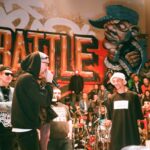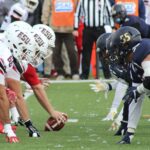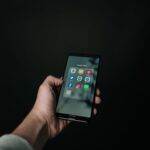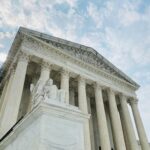Blog Posts
(Un)fair Use?: Understanding the New York Times’s Lawsuit Against Microsoft and OpenAI
Jan. 8, 2024—By Jay Eischen The nascent generative artificial intelligence (AI) industry—OpenAI in particular—has dominated headlines for more than a year. Boardroom drama, hopes of explosive productivity growth, and cautionary tales of existential risks have intermittently gripped the public consciousness.[1] Most recently, however, the legality of OpenAI’s use of copyrighted materials in training their AI models has...
From Art to Evidence: The Admissibility of Rap Lyrics in Criminal Trials
Dec. 13, 2023—By Sophie Zelony Jeffery Lamar Williams, more famously known as Grammy-award winning, Billboard-chart-topping, Atlanta-born rapper, “Young Thug,” is back in the spotlight, and his rap music has taken center-stage in Fulton County Superior Court as he faces criminal charges for conspiring to violate Georgia’s Racketeer Influenced and Corrupt Organizations (“RICO”) Act, alongside 27 other defendants....
Name, Image, and Likeness: How the NIL Has Rapidly Encroached Upon High School Sports
Nov. 22, 2023—In this new post by Matthew Lybeck ('25), read about how recent changes to the National Collegiate Athletic Association's name, image, and likeliness profitability rules have allowed opportunities to quickly spread from college athletics to high school athletics in many states, and the impact new rules and laws may have on high school athletics.
A Legal Battle Looms Over the Michigan Football Sign-Stealing Saga
Nov. 20, 2023—The University of Michigan, a top-10 D1 football program in the United States, is awaiting word from the Big Ten Conference on whether they will face disciplinary action for an alleged sign-stealing scheme, in which a member of its staff coordinated an operation to record the play call signals of future opponents. Read more about the issue's potential impact on Michigan's football program the the Big Ten Conference as a whole in this new post by Leo Hainline ('25).
“Wi-Fi on Wheels”: Shrinking the Homework Gap
Nov. 17, 2023—In Madeline Strasser's ('25) new blog post, read about the Federal Communications Commission's new plan to close the homework gap and its potential impact. The agency recently announced that it will allow E-Rate funds to be used for providing Wi-Fi on school buses starting in funding year 2024, with the expansion estimated to benefit millions of students, particularly in rural areas, who have long commutes on school buses every day.
The Supreme Court Considers Social Media’s Role in Political Discourse
Nov. 15, 2023—Recently, The Supreme Court began to hear arguments for a new series of critical cases which will help define the role of social media in society. The justices will consider the relevant question: When a public official blocks someone from their social media page does that violate the Constitution’s First Amendment? The cases before the Court echo issues raised in a previous suits against then-President Donald Trump and current President Joe Biden for blocking their critics on Twitter. Read Olivia Augustini's ('25) analysis of the ongoing litigation in this new blog post.
Artificial Intelligence Referees: Offsides and Out of Bounds
Nov. 13, 2023—This post by Benjamin Dias ('25) discusses how technological improvement has given birth to greater social scrutiny of referee performance. Beyond replay review, Sports Governing Organizations like the National Football League, National Basketball Association, and Major League Baseball have implemented various camera angles, dedicated replay officers, and trained rules analysts to ensure each game complies with official rulebooks. Still, errors occur. While sports fans and players alike call upon SGOs to replace core referee functions with Artificial Intelligence to improve officiating accuracy, this post cautions against rapid integration out of concern for three distinct categories of legal ramifications.
Supreme Court Blocks Texas District Judge’s Order Allowing “Ghost Gun” Manufacturing, Again
Nov. 7, 2023—On Monday, October 16th, the Supreme Court barred Texas-based manufacturers Blackhawk Manufacturing and Defense Distributed from selling products meant to be quickly converted into homemade firearms known as “ghost guns.” The order overruled U.S. District Judge Reed O’Connor’s preliminary injunction exempting the manufacturers from a federal rule requiring ghost gun distributors to obtain licenses, perform background checks for transactions, mark their products with serial numbers, and maintain transaction records. Read more about the decision's impact in this new post by Logan Smedley ('25).
Orthogonal Purposes and Differing Motivations: Post-Warhol Fair Use Implications of “Who Is the Bad Art Friend?”
Nov. 7, 2023—In October 2021, the internet exploded over Robert Kolker’s New York Times article, “Who Is the Bad Art Friend?” For an instant of online fixation, the tale of Dawn Dorland Perry and Sonya Larson enamored the online masses. In Samuel Fujikawa's ('25) new post, explore how the District Court of Massachusetts revived the tale in Larson v. Perry, one of the first applications of the Supreme Court’s ruling in the Andy Warhol Foundation for the Visual Arts v. Goldstein,
The Urgent Need for New, National Comprehensive Cybersecurity Regulation
Nov. 7, 2023—In recent years, cyber-attacks have become so frequent in occurrence and devastating in magnitude. Attackers have multiplied in allegiance and aim alike, and with the new sandbox of sophisticated machine learning and AI-powered tools, their damage capabilities have compounded into truly frightening—and highly feasible—prospects. In this new post, learn more about Miles Brinkley's ('25) argument for new, comprehensive federal legislative to strengthen the nation's cybersecurity policy.









